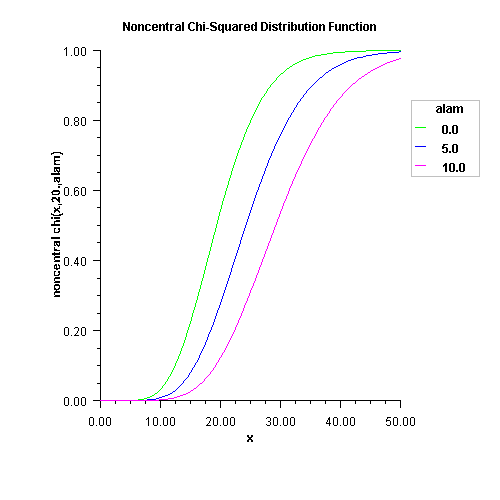| CdfNoncentralchi Method |
Namespace: Imsl.Stat
Assembly: ImslCS (in ImslCS.dll) Version: 6.5.2.0
Parameters
- chsq
- Type: SystemDouble
A double scalar value representing the argument at which the function is to be evaluated. - df
- Type: SystemDouble
A double scalar value representing the number of degrees of freedom. df must be positive. - alam
- Type: SystemDouble
A double scalar value representing the noncentrality parameter. This must be nonnegative, and alam + df must be less than or equal to 200,000.
Return Value
Type: DoubleA double scalar value representing the probability that a chi-squared random variable takes a value less than or equal to chsq.
The noncentral chi-squared random variable can be defined by
the distribution function above, or alternatively and equivalently,
as the sum of squares of independent normal random variables. If
the ![]() have independent normal distributions
with means
have independent normal distributions
with means ![]() and variances equal to one
and
and variances equal to one
and
Cdf.Noncentralchi determines the point at which the Poisson weight is greatest, and then sums forward and backward from that point, terminating when the additional terms are sufficiently small or when a maximum of 1000 terms have been accumulated. The recurrence relation 26.4.8 of Abramowitz and Stegun (1964) is used to speed the evaluation of the central chi-squared distribution functions.
